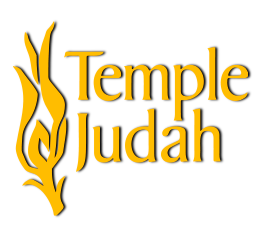Shalom All,
Rabbi Isaac Luria, the famed Kabbalist of 16th century Safed, posed the following question: how can the soul, which is purely spiritual, be nourished from physical food? How is it possible that food enables the soul to remain bound to the body? He explained that all created matter in the universe – whether human, animal, plant, or mineral – exists only through the power of Divine speech when the world was created. This “power of Divine speech” also exists in food and it becomes the spiritual nourishment the soul is able to absorb when the body eats.
When we recite a blessing before eating a piece of fruit, therefore, we acknowledge that God is the “Ruler of the universe, Who creates the fruit of trees.” This recognition awakens the fruit’s inner spiritual forces, providing spiritual sustenance for the soul.
We learn of the obligation to recite a blessing over food directly from the Torah, in Deuteronomy, chapter 8, where it is written, “When you eat and are satisfied, you must bless the Eternal your God for the good land that has been given you.” Interestingly, this commandment to offer a blessing over our food, also becomes the basis for the obligation to bless our Torah study.
There isn’t, specifically, a commandment in the Torah about reciting a blessing before studying the Torah. So the rabbis ask the question “How do we know that we should recite a blessing before Torah study?” Notice, the rabbis don’t ask if Torah study even needed a blessing, they were already blessing their study, so it must have been necessary. Now, they simply want to know why. Their answer is given in the words of Rabbi Ishmael, “If one makes a blessing for that which sustains life in this transient world, then certainly one should make a blessing for that which enables eternal life in the World to Come (Berachot 48b).”
Rav Kook explained that we are incapable of truly grasping the greatness of the Torah, a gift from God of immeasurable value. It is easier for us to appreciate material gifts. Only in the World to Come will we properly appreciate the Torah’s essential worth. Yet it is possible to deepen our emotional appreciation for the Torah by contemplating the connection that Rabbi Ishmael made between Torah and physical sustenance. If we are filled with strong feelings of gratitude for that which keeps us alive in this temporal world, all the more so should we be thankful for that which provides us with eternal life.
May we be grateful for all of God’s gifts. May we find our blessings abound, in this world, and in the World to Come.
Rabbi Todd

